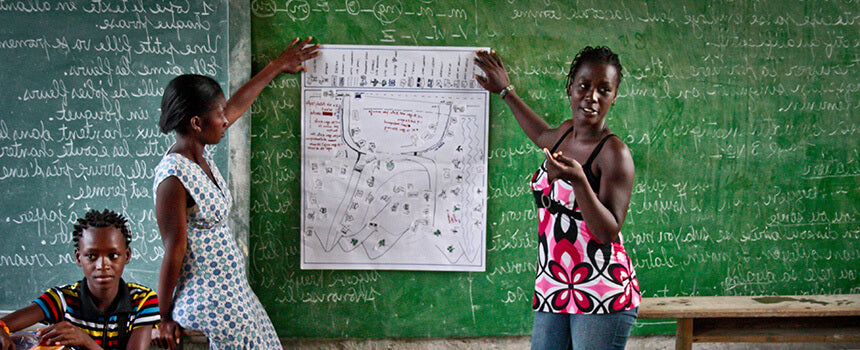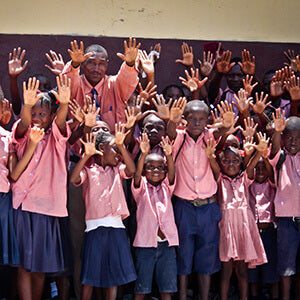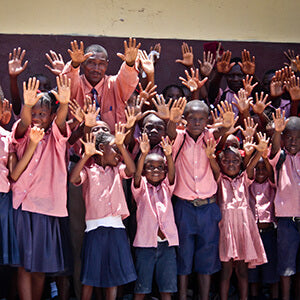Day 11
School supplies for a schoolchild in Haiti
 Education as an unshakable foundation
Education as an unshakable foundation


Lack of education for children in Haiti’s slums

need
Better educational opportunities for children in the communities of La Digue, Royal and La Hatt in Haiti.
activity
The TECHO Haiti team provides the communities with writing utensils for schoolchildren as well as blackboards and school books.
Measurable performance
The 290 students have writing utensils and the schools have new blackboards and new textbooks available for lessons.
Result
Thanks to the improved learning conditions, the level of learning increases sustainably and a higher number of schoolchildren complete their primary school education.
Systemically relevant impact
The educational level of the youth in the three communities is increasing and this represents a big step for the entire community on the way out of poverty.
background


The good deed
AboutHaiti
Port au Prince
Capital city
10 711 100
Population
813 USD
Gross domestic product
per capita per year

163
Human Development Index
(Human Development Index)



